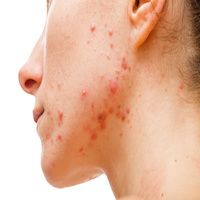Article
Adult and Pediatric Acne Treatment Gets New Guideline
Author(s):
The Canadian Medical Association Journal (CMAJ) recently released a new guideline to help Canadian nurses, pharmacists, and physicians treat their adult and pediatric patients with acne.

The Canadian Medical Association Journal (CMAJ) recently released a new guideline to help Canadian nurses, pharmacists, and physicians treat their adult and pediatric patients with acne.
According to Jerry Tan, MD, Department of Medicine, Western University, London, Ontario, “With early diagnosis, treatment of active lesions, and prevention of adverse potential sequelae (e.g., scarring, dyspigmentation, and psychosocial impact), the health of the many Canadians with acne may be improved.”
After 15 years with the same guidelines, a team of dermatologists reviewed new evidence and provided treatment recommendations for three acne presentations:
· For comedonal acne (blackheads and whiteheads) — topical benzoyl peroxide, retinoids, or a combination of topical retinoids with benzoyl peroxide or clindamycin is recommended. If a single therapy does not work, experts suggest potentially using fixed-dose clindamycin-tretinoin, and in women, combined oral contraceptives.
· For localized mild-to-moderate papulopustular acne (superficial red blemishes and pimples) - topical benzoyl peroxide is recommended. There is also strong evidence to use topical retinoids and fixed-dose combinations. For more extensive moderate papulopustular acne, dermatologists recommend oral antibiotics or combined oral contraceptives (in women) with the above topical treatments.
· For severe inflammatory acne (deep pustules or nodules) — experts strongly recommend using oral isotretinoin, although only physicians with experience in prescribing and monitoring the drug are advised to prescribe it. As always, strict pregnancy preventative measures should be monitored.
Dermatologists do note there are no existing medical plans covering these recommended therapies, so patient cost should be strongly considered when selecting treatment methods.
Tan concluded, “We hope that these guidelines will help healthcare professionals address the common scourge of acne in patients of various ages.”





